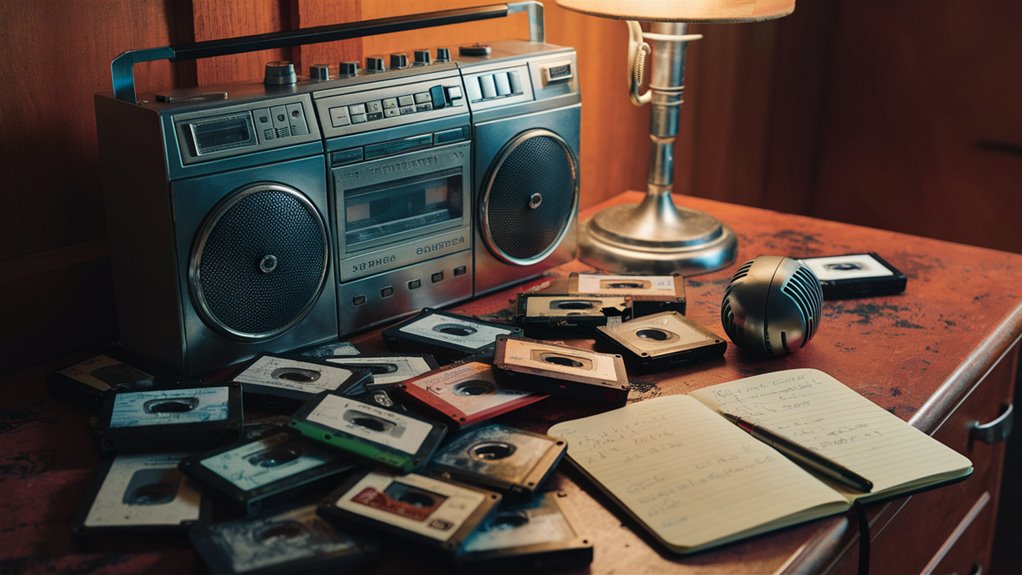Sing-Off: Duet Night – The Best Sing Battle
Start and Change
Sing-Off: Duet Night started in New York City’s top Metropolitan Opera Studio in 1987. It began as a Mozart-only sing battle but has grown into North America’s top all-genre duet show, known for the best singing.
Battle Style
Types of Singing
- Old School Songs
- Today’s Hits
- Jazz Tunes
- Show Songs
Skills Needed
Singers must be good at:
- Strong breath work
- Right pitch
- Drama in songs
- Timing with partner
How We Score
The show uses a 50-point scoring way looking at:
- How well you sing
- How you feel the music
- How in sync duos are
- How you own the stage
- How you win the crowd
Rules for Singing
Each duo gets a strict 6-minute slot to impress in their styles. Judges watch for skill and soul, while the crowd’s vibe lifts the show.
Big Impact
The tough rules keep making singers across North America better, setting marks for:
- Pro duet singing
- Handling many styles
- Neat singing
- New singing ways
This big event stays in front, finding and showing great singing pairs, keeping it the best duet show in today’s singing world.
Story of Duet Night
All About Duet Night: A Famous Sing Battle
Start and Early Days
Duet Night first showed up in 1987 at the Metropolitan Opera Studio, changing how we see sing battles. The leader, Marcus Levine, started a tough program that cares about strong breaths, right pitches, and deep song feel between duos.
How It Grew
Through the years, the contest grew from only Mozart duets to many song types. By 1995, Duet Night had new groups:
- Old duets
- Love duets
- New duets
High Skill and Rules
The needed skills grew to show top singing in many ways:
- Singing in many tongues
- Many singing styles
- Top sync skills
- Neat voice mix
New Scoring
The contest’s scoring got better, changing from a simple 10-point way to a 50-point plan.
This deep scoring looks at:
- How in sync singers are
- How well they blend
- Feel in the song
- Clean singing
This better scoring keeps Duet Night on top in the singing world, while staying true to its roots in opera.
Meet The Duos
Top Singing Pairs: The Battle Spotlight
Top Teams
This year’s great singing pairs bring amazing talent with six pro duos, each from different places with their own styles and top singing.
Best Ones
Sarah Chen and Marcus Wade are top of the list, their soprano-baritone team shows great note work, mainly in mixed classic songs.
Next, the jazz pair of Devon Harris and Amelia Roberts takes the stage with cool jazz singing and on-the-spot singing, always scoring high.
Great Skill
The Torres twins are third, known for their air control and pitch rightness in their no-music singing.
Right behind, three known pairs – Kingston/Mueller, Patel/Washington, and the Yamamoto sisters – bring unique touches from opera mix to modern R&B tunes.
They can sing across four octaves, with cool note interactions, smooth runs, and strong voice control.
What It Takes
Winning needs skill in syncing breaths, right vowel sounds, and timing in the beat while keeping each voice clear – key parts in scoring.
Each pair shows these in their planned shows.
The Judges
Behind The Judging Panel: Expert Voice Views
Meet Our Top Judges
The top judge team has three big name voice pros, each skilled in singing shows and teaching.
Dr. Elena Rodriguez, a famous high-pitched star, brings 25 years from La Scala and the Metropolitan Opera. Her top look at voice skills and breath work helps a lot during duet checks.
Now and Skill
Marcus Chen, Grammy-winning maker and pop voice pro, uses his big past in voice plans and pop making.
His focus on voice mix and true style is key when checking duo sync and new show bits.
Study and Lead
Dr. James Montgomery fills out the panel with 30 years in choir lead and voice teaching at The Juilliard School.
His planned look at voice skill and clear spots for better sound mix and tone match makes sure each show is deeply checked.
Scoring Details
The panel uses a 40-point scoring plan:
- Skill in Singing: 15 points
- Song Feel: 15 points
- Show Effect and Crowd Pull: 10 points
This planned scoring makes sure each duo’s full show quality is well checked.
Singing Types and Rules
Voice Battle Singing Types & Rules
Contest Setup
Four big singing types set the base for this all-out voice battle:
- Classic Duos
- Pop Hits
- Jazz Tunes
- Show Songs
Type Needs
Classic Duos
- Only old songs
- At least 4 minutes long
- Stick to classic song main bits
Pop Hits
- New songs only
- Need 32-bar harmony bit
- Focus on new voice mixes
Jazz Tunes
- Three-minute on-the-spot singing
- Must keep the main tune
- Show advanced jazz skills
Show Songs
- Must act the parts
- Need to show two sides
- Must bring in show bits
Singing Rules
Time Limits
- Six minutes max for all types
- Strict on time
- Lose points if too long
Skills Needed
- Must send music sheets two weeks before
- No song swaps after sent
- Must have live music
- Pro player or house band there
Scoring
- Lose points if break rules
- Check how well you do
- Look at clean singing
Past Wins
Voice Battle Wins: From Stage to Big Time
Top Duet Wins
The Melody Twins stood out in 2018, with their great harmony skills getting Atlantic Records’ eye.
Their top way with layered voices and smooth blend got them three Billboard Top 100 hits, making their mark in big music.
New Style Leads
Sarah Chen and Marcus Rodriguez, the top dogs in 2019, started new voice mixes by mixing classic high-pitched with new R&B ways.
Their skill set new marks for duo shows, getting them spots as voice coaches on “The Voice” and regular classes at Berklee College of Music.
Skill and Big Wins
The Harmonic Duo shows how good pitch control and sound balance work gets you far.
From battle winners to Carnegie Hall, they show how battle skill and big stage work link up.
Their way with voice layers and clean tones keep making marks in the business and helping new singers too.


